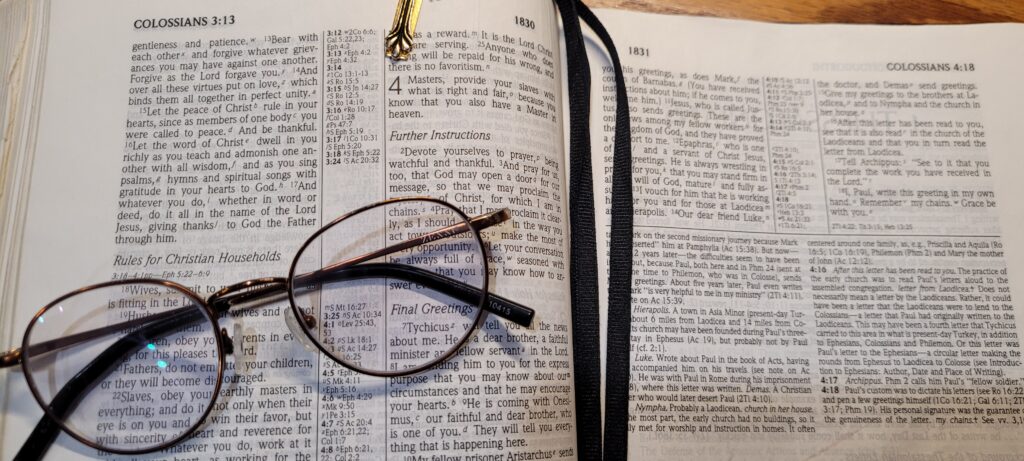“I’ll never forgive him for what he did.”
Ever heard those words? Maybe you’ve said them, or something very close to that?
God could have taken that attitude toward us. He had every right to do so. Not just for the first sin in the Garden of Eden, but for all our subsequent disobedience that continues down to this very day.
But God had a different plan. He let someone take our place and our punishment so that we could be forgiven, even though we do not deserve it. That is what the life and death and resurrection of Jesus are all about. He endured all the temptations we have, but never once sinned. Then he allowed himself to be crucified even though he had done nothing wrong. He went through all that to accomplish your forgiveness.
As those who have been forgiven by God for Jesus’ sake, we have been called to be forgiving people. In the prayer our Lord taught us, he said, “forgive us our trespasses as we forgive those who trespass against us.” And the Lord led Paul to write these passages:
Be kind and compassionate to one another, forgiving each other, just as in Christ God forgave you. (Ephesians 4:32)
Bear with each other and forgive whatever grievances you may have against one another. Forgive as the Lord forgave you. (Colossians 3:13)
We are called to be forgiving people. Yet we often have the thought and attitude expressed in the first sentence above. We act as though not forgiving someone will hurt that person, when in fact the one you end up hurting is yourself. Lack of forgiveness is harboring a grudge, which is a sin on your part! And the longer you let it eat at you, the longer you remain in your sin.
Think of it this way: if you refuse to forgive someone who has already confessed his sin to God and been forgiven by the Almighty, how much do you think your refusal to forgive will hurt him in the grand scheme of things? All it will do is keep you angry and keep you from living the joy-filled life that God desires for his redeemed children.
However, when you forgive someone, the weight of anger and resentment is lifted from you. You no longer have to carry it around and allow it to drag you down.
And let’s be clear about something. Your forgiveness is not the same as God’s forgiveness. We forgive because we have been forgiven by God, but your forgiveness does not equate to God’s remission of sin. When you forgive someone, it is to keep you from sinning. It is still up to that other person to confess his or her sin to God and ask to be forgiven for Jesus’ sake. That is the forgiveness that matters in the long run.
If we confess our sins, [God] is faithful and just and will forgive us our sins and purify us from all unrighteousness. 1 John 1: 9

